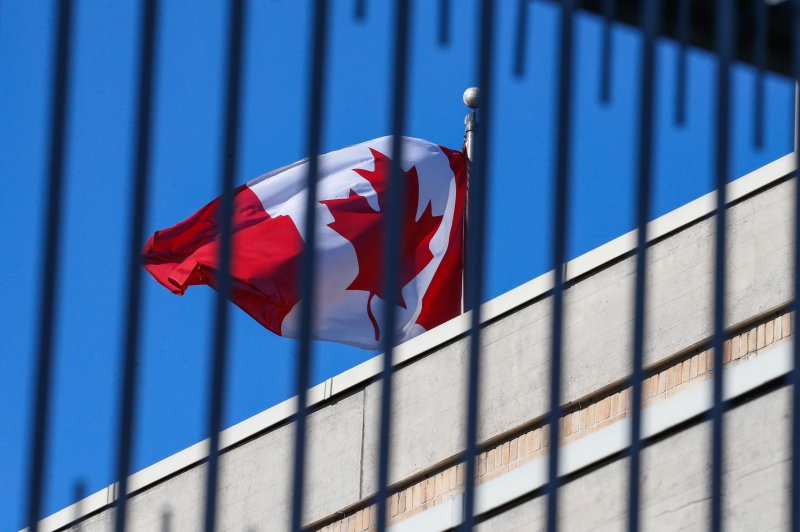Five Canadian diplomats are suing their own government because they believe it took too long to evacuate them after they started showing health problems at the embassy in Havana, Cuba. Photo by Roman Pilipey/EPA-EFE
Feb. 7 (UPI) -- Five Canadian diplomats are suing their own government for $28 million over mysterious health conditions they got after working at the embassy in Havana.
They accuse Ottawa of delaying their evacuation from Cuba even though they had serious health problems. The diplomats and their family members -- 14 in all -- complain of migraines, excessive fatigue, brain damage and sensitivity to light. They call it "Havana Syndrome."
"Throughout the crisis, Canada downplayed the seriousness of the situation, hoarded and concealed critical health and safety information and gave false, misleading and incomplete information to diplomatic staff," the lawsuit claims.
Some believe Cuba launched some kind of targeted sonic attack at the Canadian Embassy. Cuba has denied any involvement and Canada hasn't officially blamed Havana.
Canada's Foreign Affairs Minister Chrystia Freeland told BBC News she was aware of the lawsuit.
"I am not going to comment on the specifics, but I do want to reiterate that I have met with some of these diplomats and, as I said to them, their health and safety needs to be our priority," Freeland said.
Radio-Canada talked to some of the plaintiffs and changed their names to protect privacy because many still work for the government.
Daniel, a career diplomat, his wife and children were diagnosed with brain damage in June 2017. All the plaintiffs started having health issues during that same summer.
"My wife, she isn't the same anymore. She has gaps in her memory, headaches, problems hearing. She picks up the telephone to make a call but forgets why, enters rooms without reason. She can't concentrate anymore," he told Radio-Canada.
U.S. diplomats suffered many of the same health issues at their embassy in Havana, and the United States sent non-essential personnel home in September 2017. Canada waited until last April to evacuate family members and gave diplomats the option that month and again in November to leave. Last month, Canada sent half its personnel home from the embassy.
Several of the U.S. diplomats complained of inner ear damage.
"When the U.S. was withdrawing its diplomats, Canada knew there was a problem and we didn't pull our people out," plaintiffs' lawyer, John Phillips told Radio-Canada. "What we're looking to be compensated for, is the long term damage that's been done, to the diplomats and their families. It's brain injuries and it's long term."
The cause of the mysterious illness remains a mystery but neither the United States nor Canada has gone after Cuba, yet.
"Why didn't we have access to the specialized care we needed? This wasn't by chance. It was the result of their decisions," Manon said. "Who will give us this time back?"
The diplomats and their families are being monitored at the University of Ottawa's Brain and Mind Research Institute and the Brain Repair Center at Dalhousie University in Nova Scotia.















